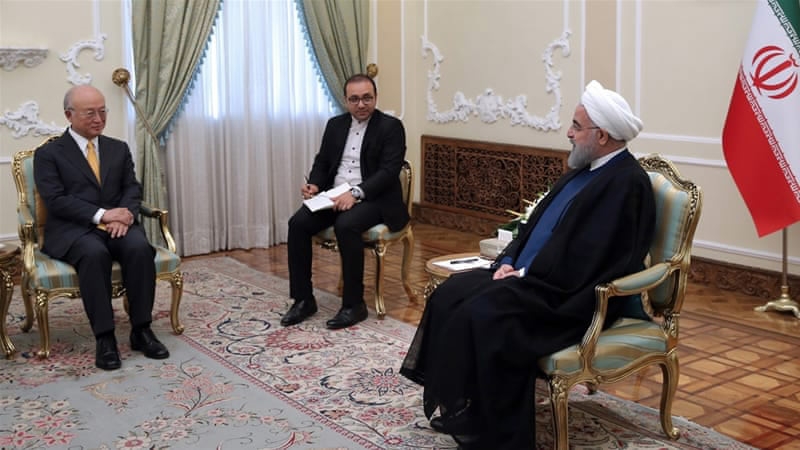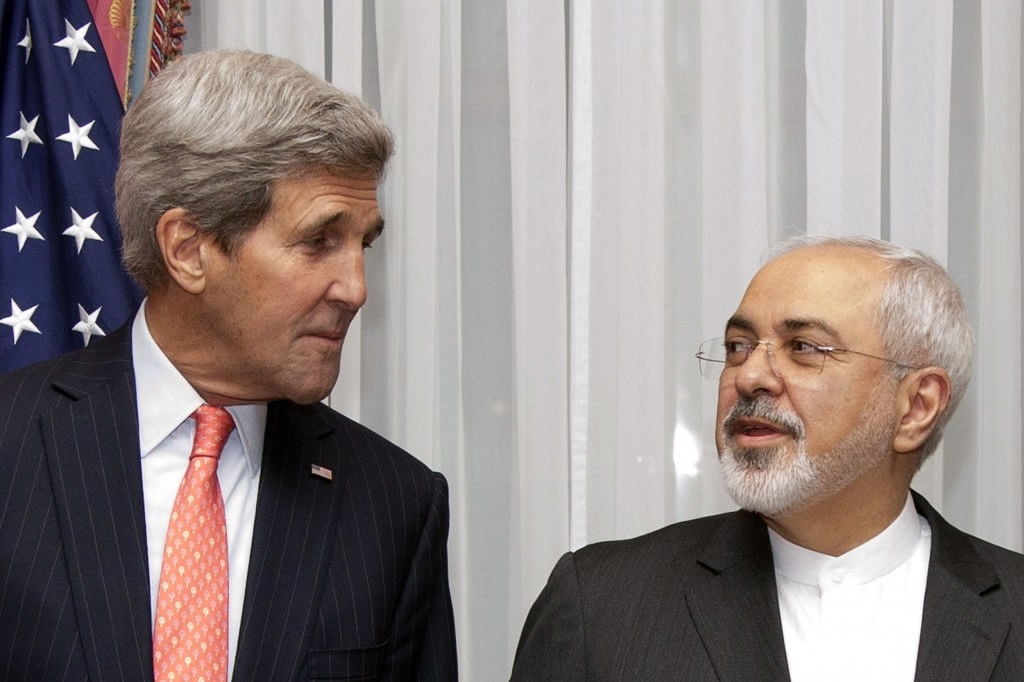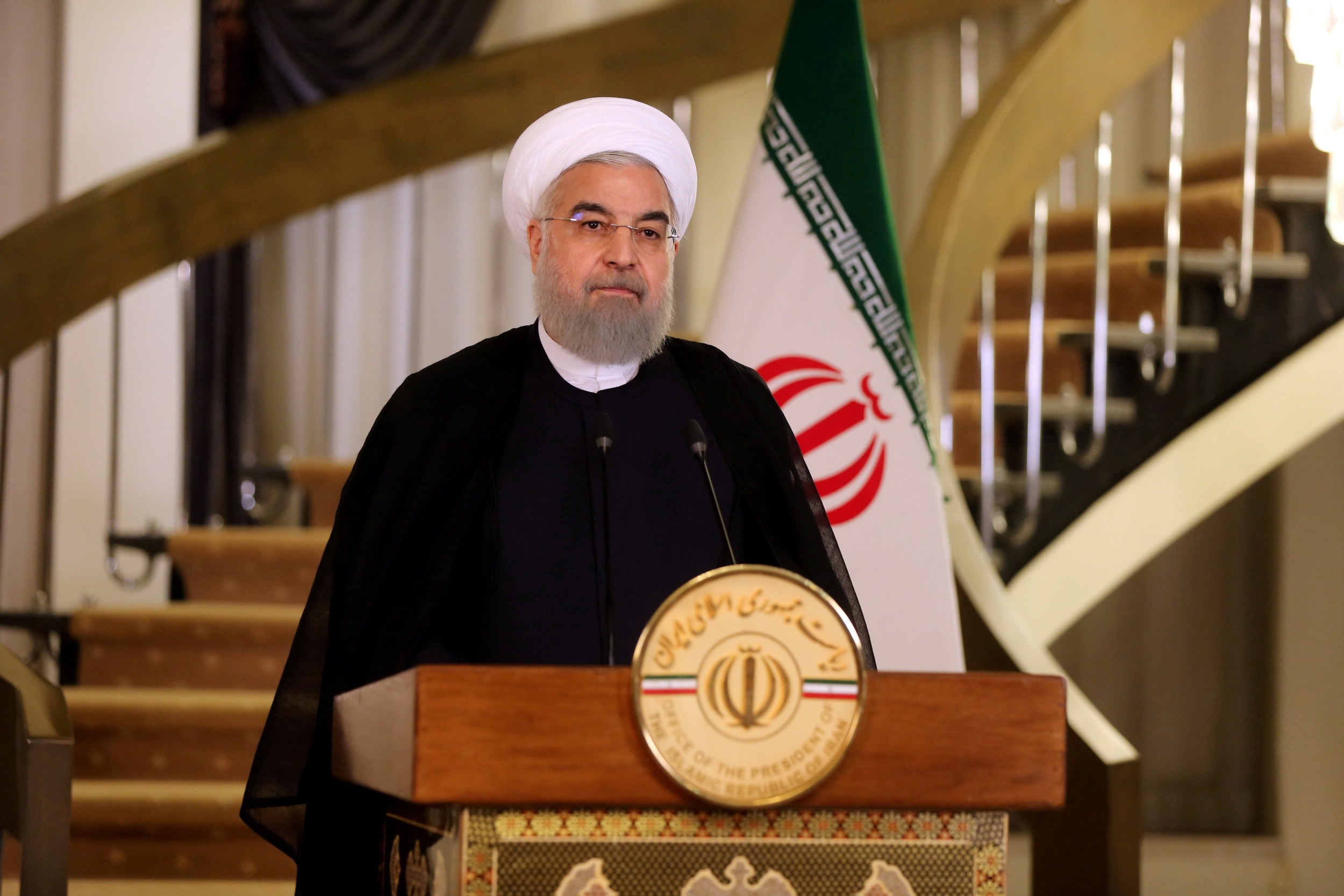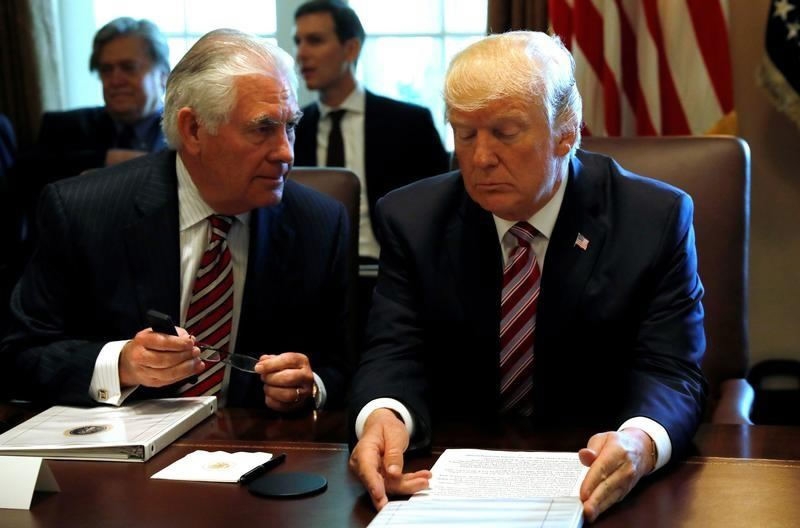
Politics
08:24, 30-Oct-2017
IAEA says Iran implementing its nuclear deal commitments
CGTN

The head of the UN atomic agency on Sunday said Iran was in full compliance with commitments made under a landmark nuclear deal with world powers.
"As of today, I can state that the nuclear-related commitments made by Iran under the JCPOA (nuclear deal) are being implemented," Yukiya Amano said at a press conference in Tehran broadcast by state television.
The 2015 accord, signed by the Islamic republic as well as Germany, Britain, China, France, Russia and the United States, saw economic sanctions on Iran lifted in exchange for it curbing its nuclear activities.
This month, US President Donald Trump said a "total termination" of the deal remained possible, after refusing to certify the accord and leaving its fate to the US Congress.
On Sunday, Iran's President Hassan Rouhani, Foreign Minister Mohammad Javad Zarif and Iran's Atomic Energy Organization chief Ali Akbar Salehi met Amano in Tehran.

Former US Secretary of State John Kerry and Iran's Foreign Minister Mohammad Javad Zarif pose before resuming talks in Lausanne, March 16, 2015. /Reuters Photo
Former US Secretary of State John Kerry and Iran's Foreign Minister Mohammad Javad Zarif pose before resuming talks in Lausanne, March 16, 2015. /Reuters Photo
According to the government's website, Rouhani told Amano that Iran wanted to "cooperate with the IAEA long term".
"We want to continue with the nuclear accord and avoid (the United States) disturbing it," Salehi said.
"If the nuclear deal is broken, it will have unpredictable consequences."
The 2015 accord included a ban on high-level uranium enrichment – 20 percent or more – that would take Iran close to the level needed for a nuclear weapon.
Salehi said that Iran could resume uranium enrichment of 20 percent within four days if it wished.
"But we don't want that," he said.
Under the deal, Iran is allowed to enrich uranium to low levels of 3.5 percent, which can be used to power reactors.
At 20 percent, uranium can be used for nuclear medicines, but crucially leaves only a small amount of work to get to the 90-percent level needed for a nuclear weapon.
Message to Trump: Iran will continue missile program
Speaking in a televised speech on Sunday, Rouhani said Iran will continue to produce missiles for its defense and does not consider that a violation of international accords.

Iranian President Hassan Rouhani delivers a television address in Tehran, Iran, October 13, 2017. /Reuters Photo
Iranian President Hassan Rouhani delivers a television address in Tehran, Iran, October 13, 2017. /Reuters Photo
It came days after the US House of Representatives voted for new sanctions against Iran's ballistic missile program, part of an effort to clamp down on Tehran without immediately moving to undermine an international nuclear agreement.
"We have built, are building and will continue to build missiles, and this violates no international agreements," Rouhani said.
The United States has already imposed unilateral sanctions on Iran, saying its missile tests violate a UN resolution, which calls on Tehran not to undertake activities related to missiles capable of delivering nuclear weapons.
But Iran denies seeking nuclear weapons and says it has no plans to build nuclear-capable missiles.
Rouhani also criticized the United States over Trump's refusal this month to formally certify that Tehran is complying with the accord on Iran's nuclear program, even though international inspectors say it is.

US President Donald Trump talks with Secretary of State Rex Tillerson during a meeting with members of his Cabinet at the White House, June 12, 2017. /Reuters Photo
US President Donald Trump talks with Secretary of State Rex Tillerson during a meeting with members of his Cabinet at the White House, June 12, 2017. /Reuters Photo
"You are disregarding past negotiations and agreements approved by the UN Security Council and expect others to negotiate with you?" Rouhani said.
"Because of the behavior it has adopted, America should forget any future talks and agreement with other countries," he added, referring to unnamed countries in East Asia, an apparent reference to the Democratic People's Republic of Korea.
Source(s): AFP
,Reuters

SITEMAP
Copyright © 2018 CGTN. Beijing ICP prepared NO.16065310-3
Copyright © 2018 CGTN. Beijing ICP prepared NO.16065310-3